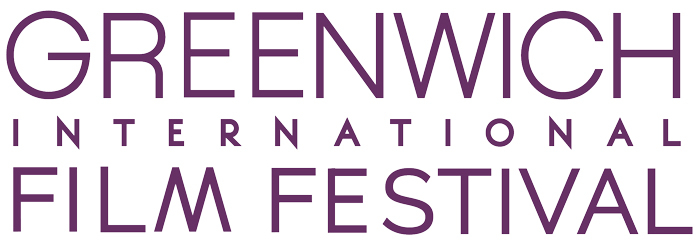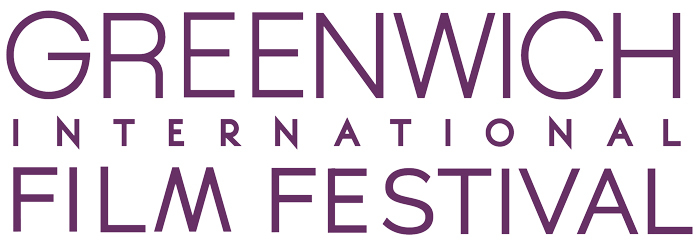
This month marks the open of a new year at Greenwich International Film Festival with our Call for Entries going out, submissions opening and the launch of my new semi-regular blog for the Festival. If you are a well-studied filmmaker, you should already know about Greenwich, which debuted last year to enthusiastic audiences and large cash prizes. In fact, as the globe fills with film festivals, it has become more and more important that filmmakers do their homework, plan their strategy, and roll their film out in a systematic approach.
Every filmmaker’s dream is to see his or her “own name on a screen, five feet wide and luminous” to quote Soul Coughing’s Screenwriter’s Blues. With studios filling cineplexes with blockblusters at 6 screens a piece on an opening weekend, it is harder than ever for a smaller film to reach a release. Even arthouses have been commandeered by specialty wings of studios like Fox Searchlight and Focus Film (a division of NBC Universal). Of course, that’s where film festivals enter the equation, and certainly for short films, film festivals are the ONLY place to get your work on the big screen.
PAST THE PRIZE
Film festivals do a tremendous amount for filmmakers. Let’s get past the most obvious, which are cash prizes, which any reputable film festival should be offering a filmmaker. Be wary of a festival with no cash prizes at all, and see if the other opportunities make up for that. A more important part of a film festival competition is the Jury. In addition to making the decisions, a good jury is composed of people in the industry who can help a filmmaker: agents, producers, festival programmers, critics, other filmmakers. If they like a film, even if it doesn’t win a prize, they can open doors for a filmmaker – and this is often better than the cash. Sometimes prizes are more than cash, they can be grants for shooting in the vicinity of the festival sponsored by the local film commission, they can be camera packages, post-production services, and even a distribution deal.
Those takeaways are the easier ones to quantify, but a film festival offers so much more to a filmmaker, even for those that do not take home ‘wins’ in the competition column. I work with a lot of film festivals as a consultant (five in 2015 alone), but I also work with dozens of filmmakers consulting them specifically on their film festival strategy. The one thing I tell each and every one of them is that you need to go to the film festivals where your film is playing to really get the benefit out of playing there. In fact, you shouldn’t even really be submitting to a film festival if you don’t intend to go to it. Of course, you won’t go to every festival that selects your film (you may have two festivals on the same weekend, you may be onto your next project and filming, you may have already been to twenty festivals with your film).
One strategy filmmakers seem to employ and think of as ‘exposure’ is ‘laurel-grabbing,’ this is the attempt to get as many festival ‘Official Selection’ laurels as possible to display on your poster and website. While there is nothing wrong with this approach, it overshadows the truly great festivals you play at (people won’t be able to find them on your poster) and it costs a lot of money.
YOUR FESTIVAL AUDIENCE
Pick the festivals you want to go to, submit, and then go. Being at the festival with your film is where all the truly great stuff happens. You will show your film to real people, who are there to see your film, and talk to you about it. You can learn a lot about your film by questions asked at Q&As and around the festival. You can see what people are responding to (either to make changes or more likely to incorporate into your next film). You will meet other filmmakers and see their films. These are future collaborators and future resources (for supplies, suggestions, crew, even indiegogo or kickstarter contributions). More importantly, they are fellow travellers on this lonely, frustrating path you’ve chosen. You will run into them at other festivals, and already have a support group built in to help your networking.
And that’s actually the secret point of festivals, they are networking opportunities unavailable anywhere else. They bring together filmmakers, film fans, industry types of every ilk, and festival people of course (who often know other festival people). A producer I met at Greenwich told me about a short he was really excited about, and I encouraged him to submit it to St. Lawrence International Film Festival, a festival he had never heard of. That film just won the grand jury prize there for documentary shorts. Programmers travel the world to check out films at other festivals and see how they play to audiences, or just to meet filmmakers and see what they are working on (maybe your next film will have a few festivals interested before you even finish it – how great would it be to have people excited and waiting for you to submit?). That person in the crowd next to you that you strike up a conversation with? He might just be a millionaire looking to get involved in film. This is certainly more likely at a place like Greenwich or Napa, but every town has someone with money and a little money well spent goes a long way.
One last thing you will take away from playing your film at a film festival, inspiration. You will be around creative people seeing creative work and you will come home excited to push your film, push your career, and push yourself to the next level. Contact you meet will open doors, and you will find a new energy to step through them into the unknown. Filmmaking can be a lonely venture, film festivals can be that place where you step out of your comfort zone and find there is a wider world interested in your work and ready to help you.
A film can generally play the festival circuit for 18 months after it premieres. Some festivals want to be your premiere (World or US or at least State), but many don’t care. Most of them don’t care at all for shorts (although you usually won’t play in the same town). After you play a bigger festival, you will often get requests from other festivals to see your film, usually with waivers or at least discounts (if they are not willing to do a discount, I would not submit, they don’t really want your film, just a submission fee).

THE NUMBERS GAME
How many festivals should you submit to? That’s a difficult question. I would definitely budget for it when you making your film. Submissions are not cheap. And unless there is a festival you HAVE to submit to, I always suggest only submitting to the early deadline. You may only save a few dollars here and there but over the course of an entire film’s run, it can reach thousands of dollars. Remember you have 18 months to submit, and that clock doesn’t start until you premiere. Many international festivals are even free to submit (yay government funding!).
Even good films get turned down at festivals. When I programmed at Austin Film Festival, one year we received 3,500 submissions and programmed about 220 shorts and features (they probably get even more now). I’ve turned down films that went on to play Sundance, I’ve turned down films that went on to win the Oscar (true – although that one was really close). So it’s all subjective. You have to develop a thick skin. My last short played 38 film festivals, but it got turned down by 65.
One thing you can do is roll out your submissions slowly. If you are not in hurry to throw money into the unknown, pick a couple high level festivals, see how it does, and then you can always hit up the next tier of festivals a few months later. Remember, your clock does not start until it plays. If a festival asks for a completion date, it is always the month you are submitting (you just finished it!), until it plays somewhere.
There are 3000+ festivals out there, where do you send it? Well, of course you should send it to Greenwich – not being biased, but for a 2nd year festival, the amount of industry involvement in the festival, the access to potential financiers, and the generous cash prizes ($10,000 for features, $2,500 for shorts, and an additional $10,000 for the Social Impact award) make it a can’t be missed opportunity for filmmakers. Also, as a new festival, not everyone knows about it, so your chances to stand out from the rest is better before submissions numbers increase.
Be sure to enter your film in the Greenwich International Film Festival click here to submit.


